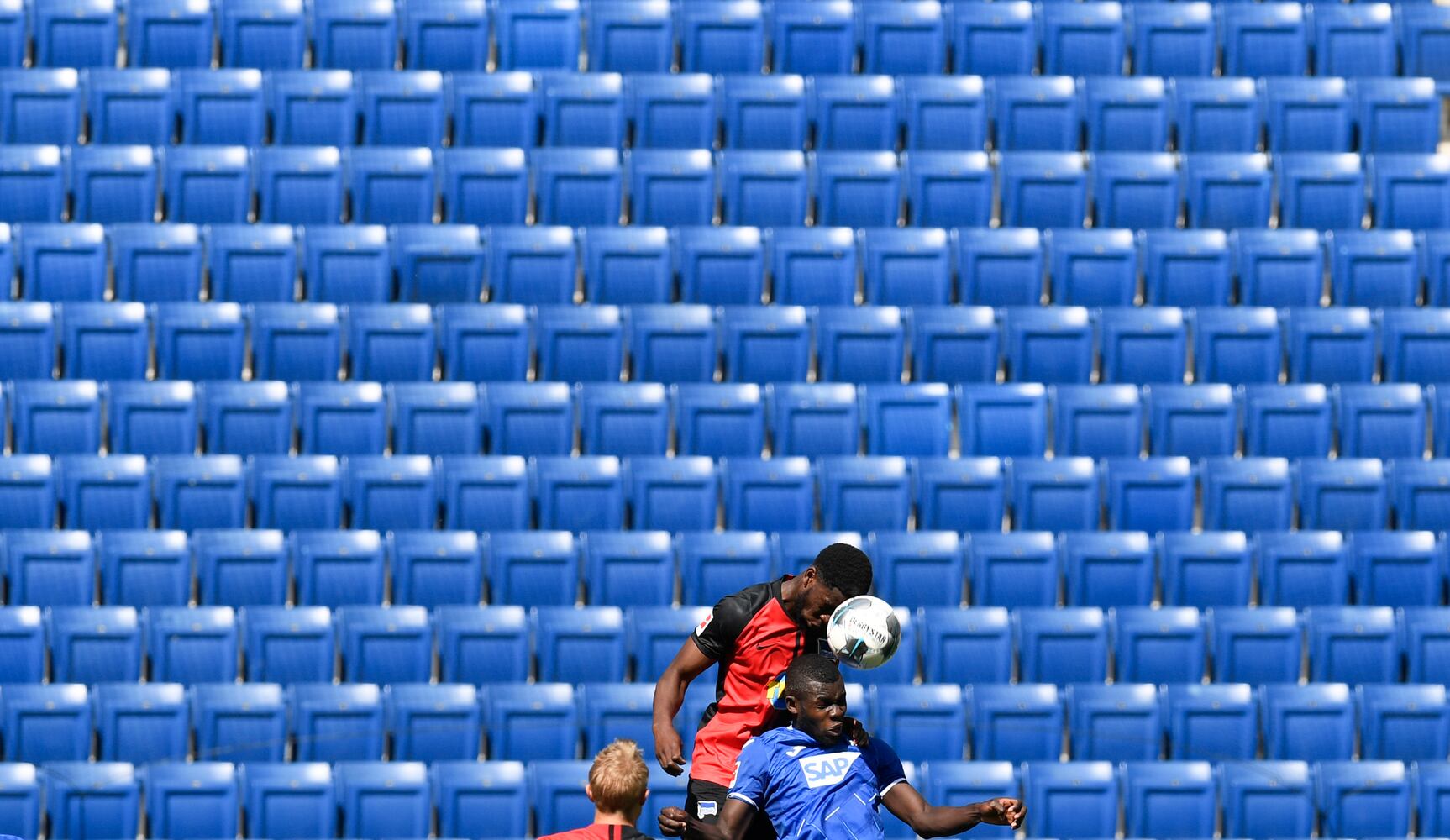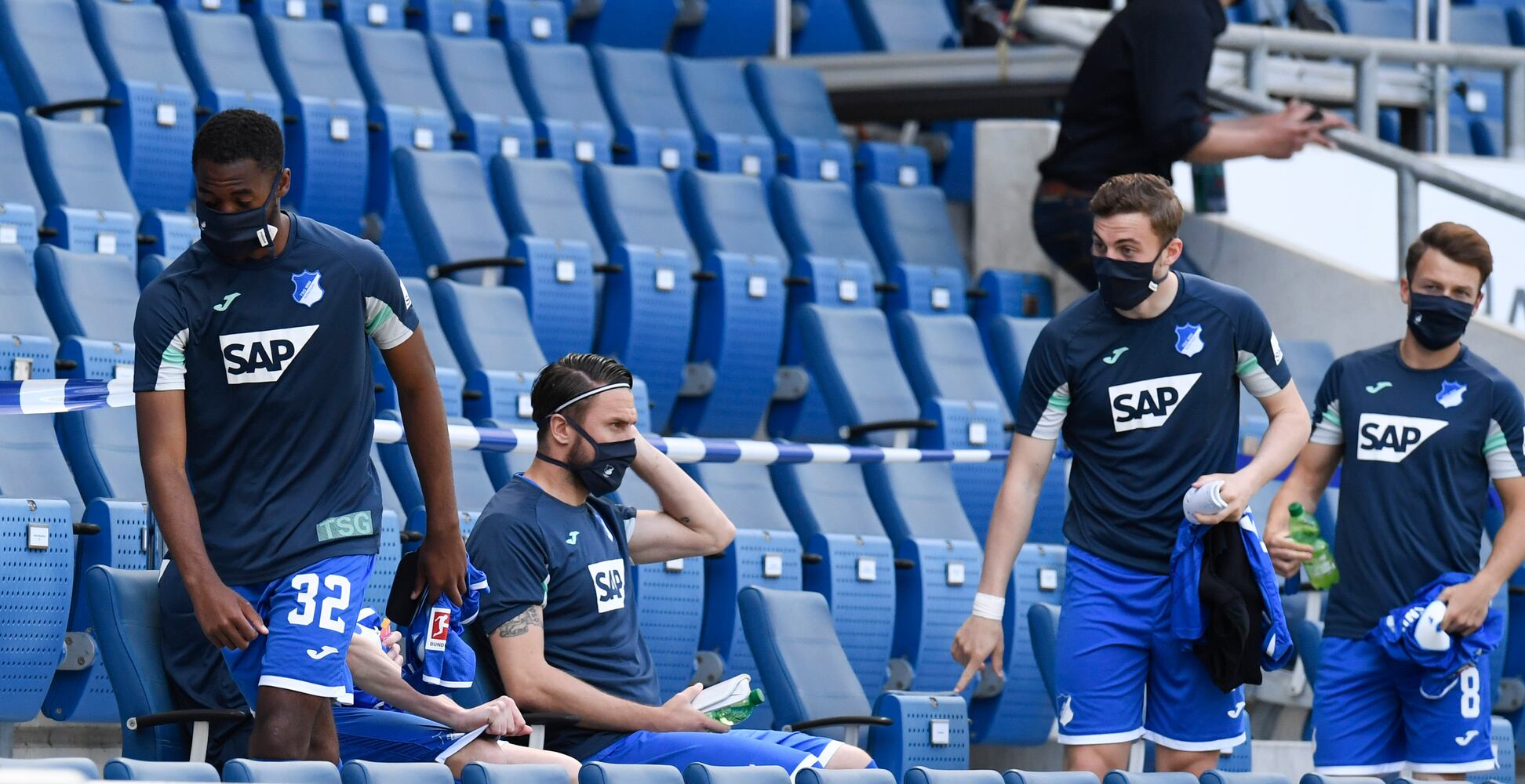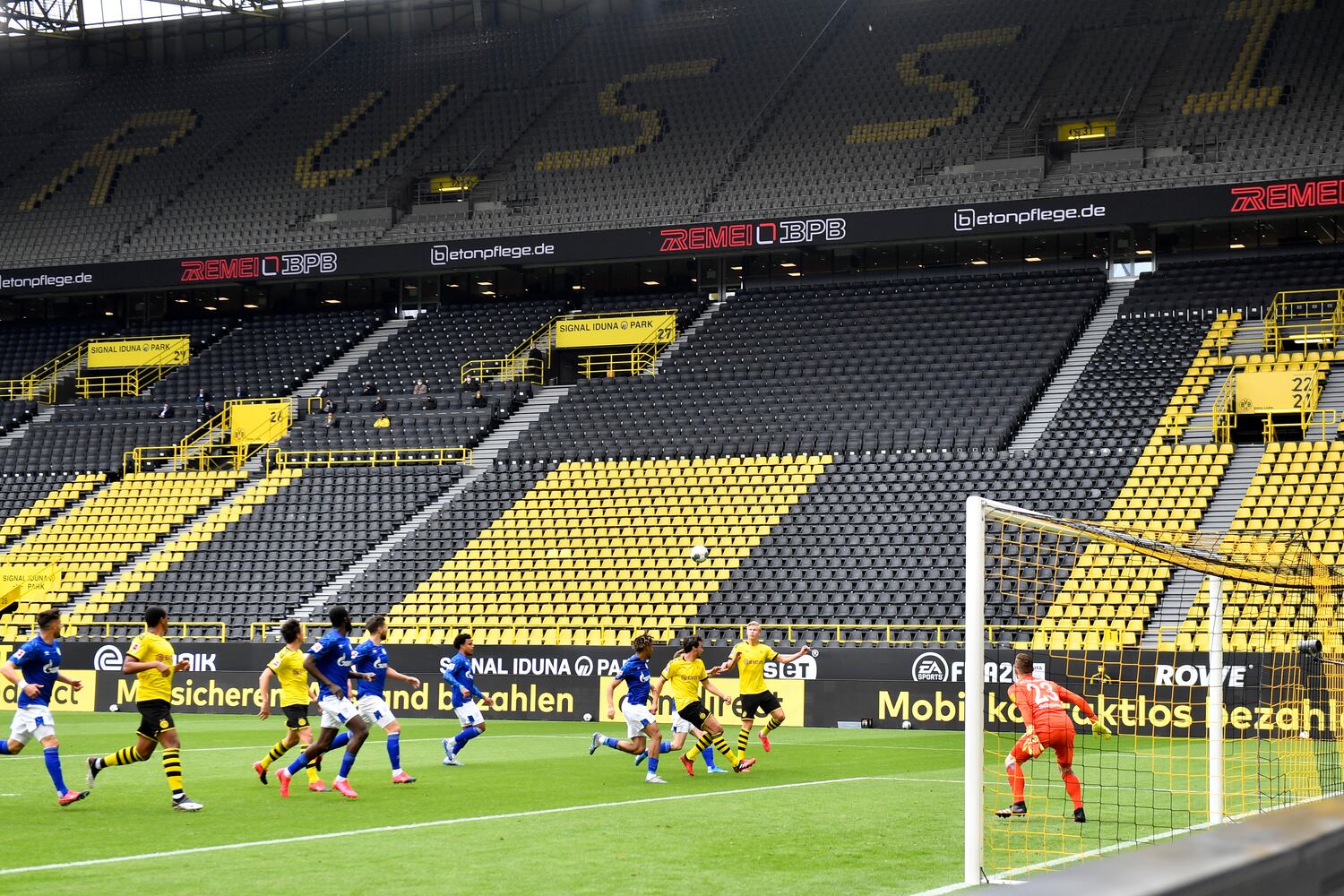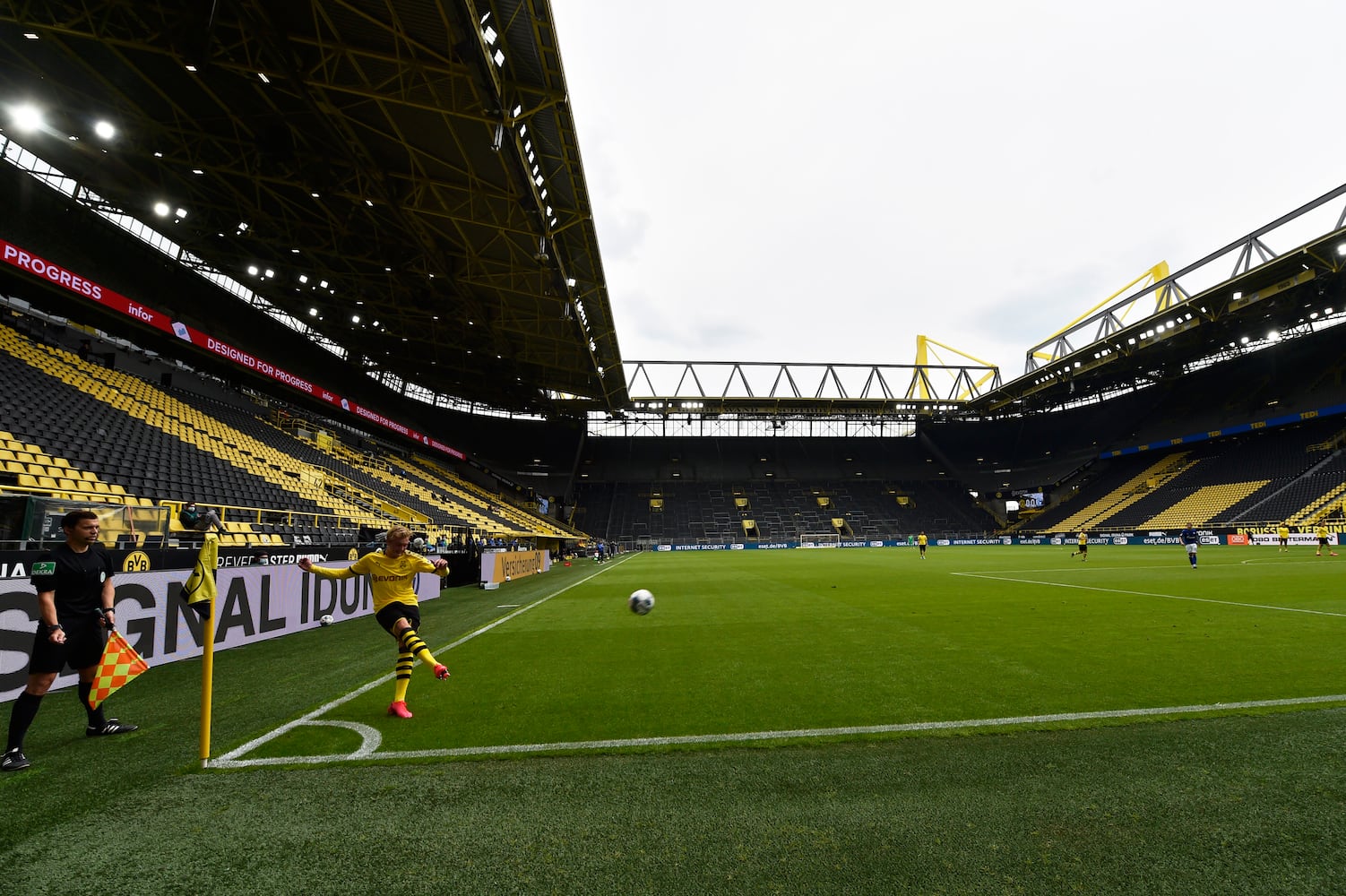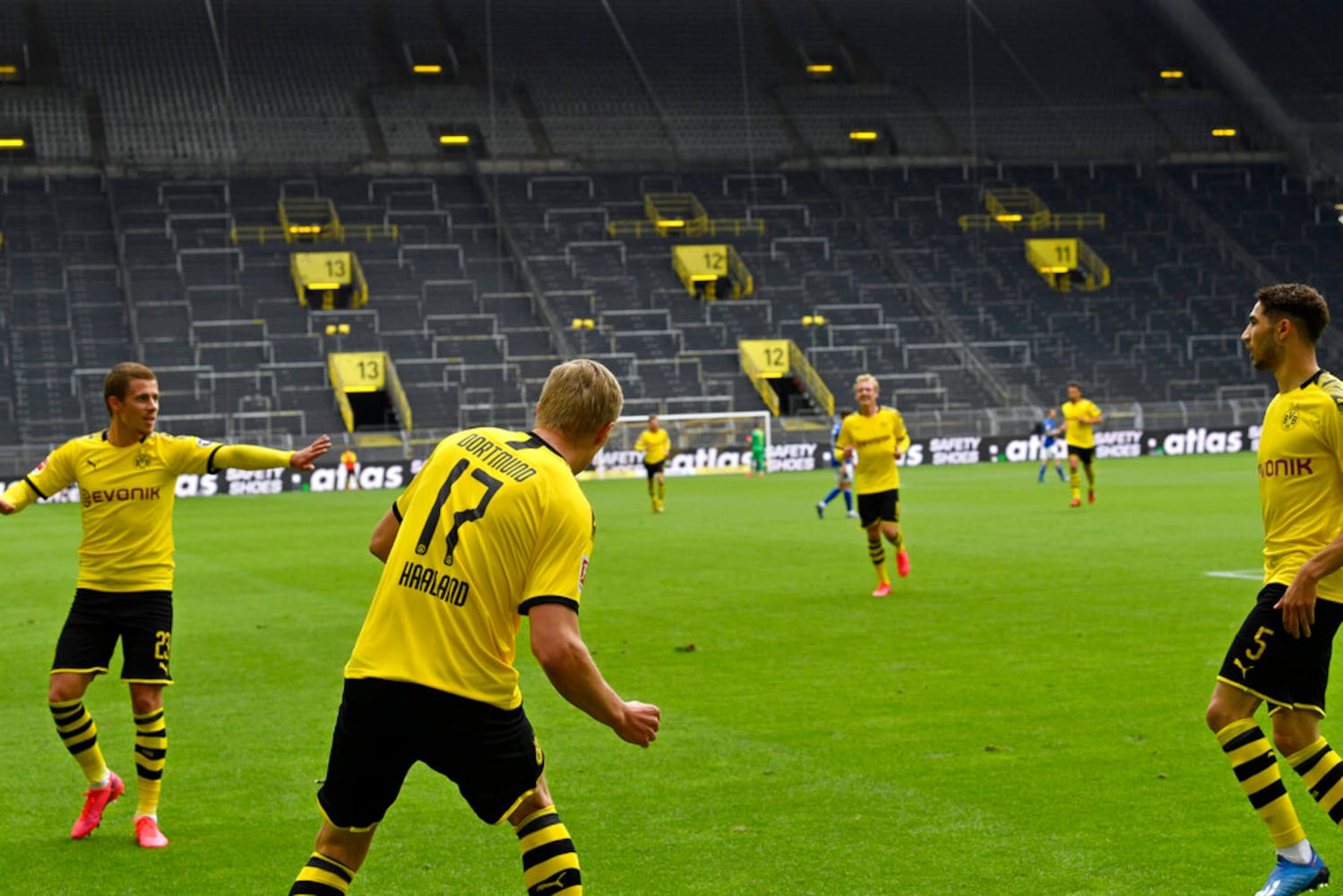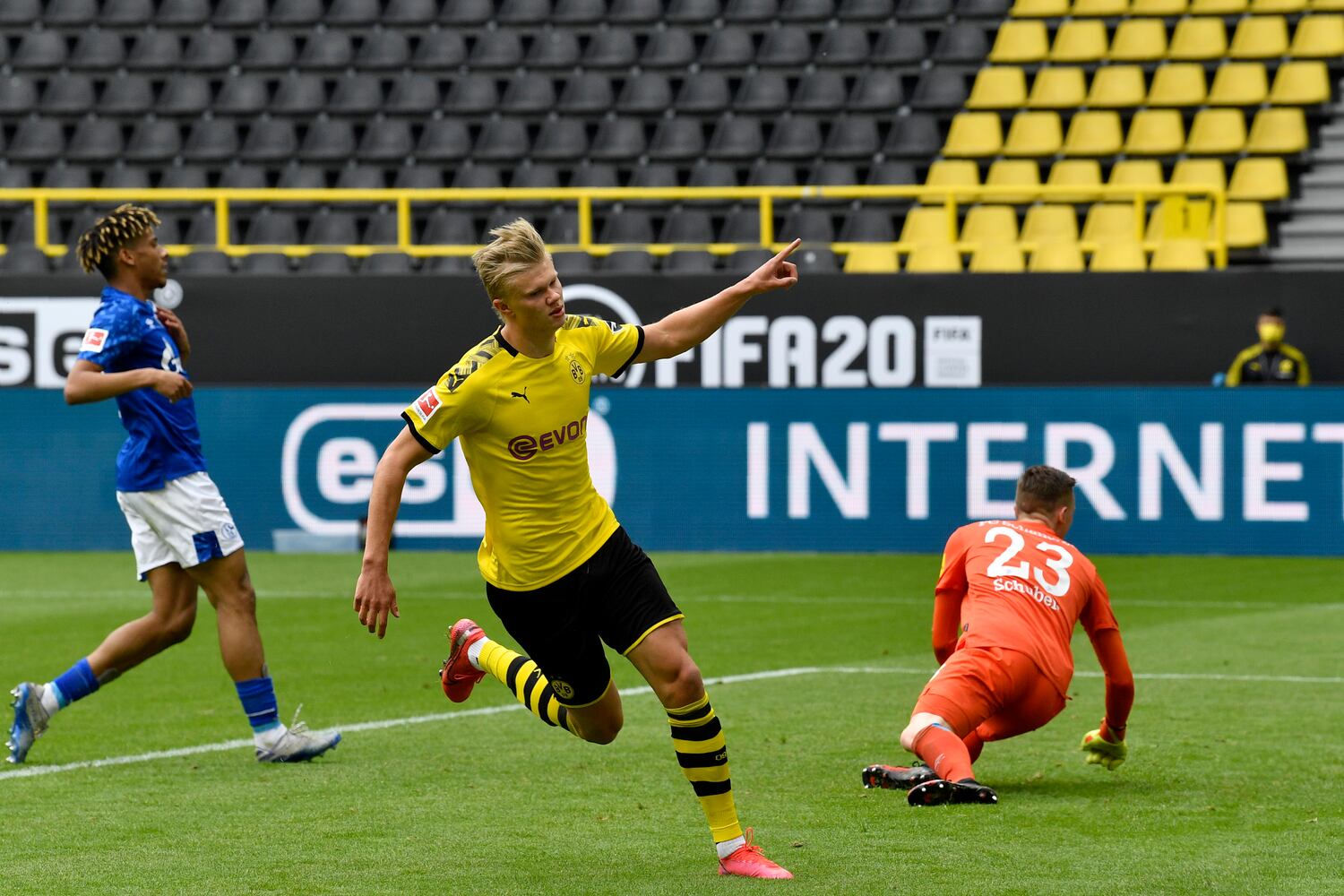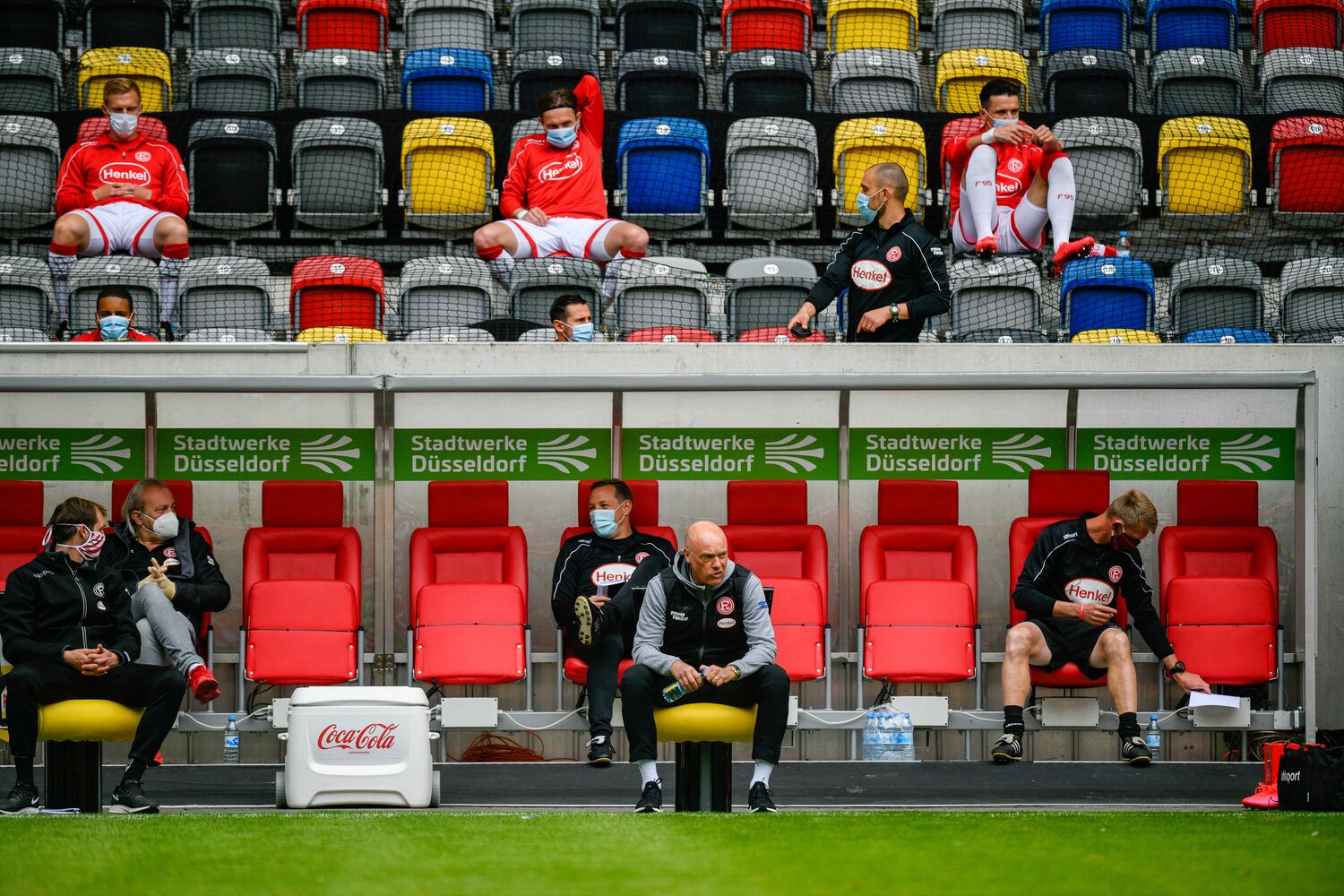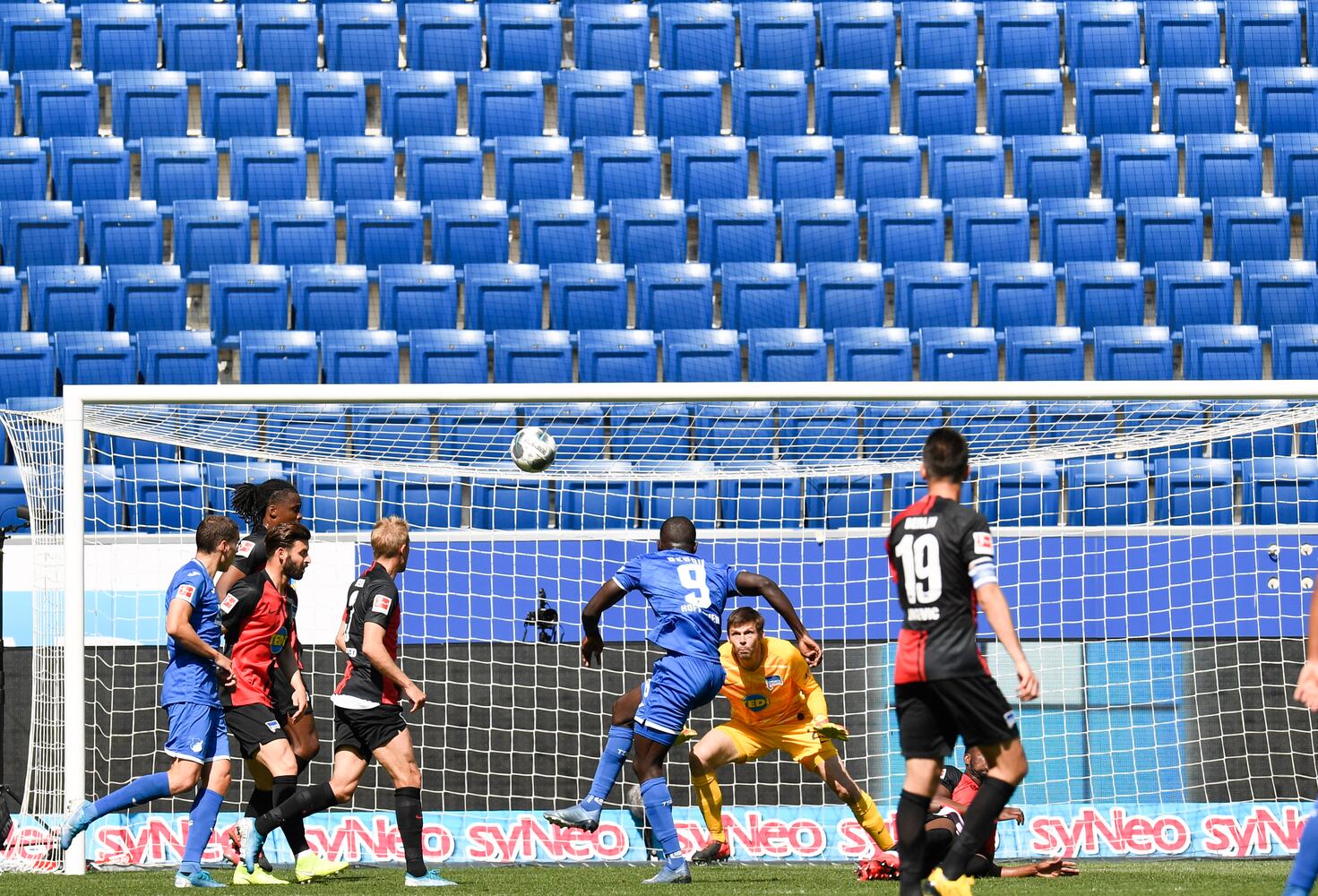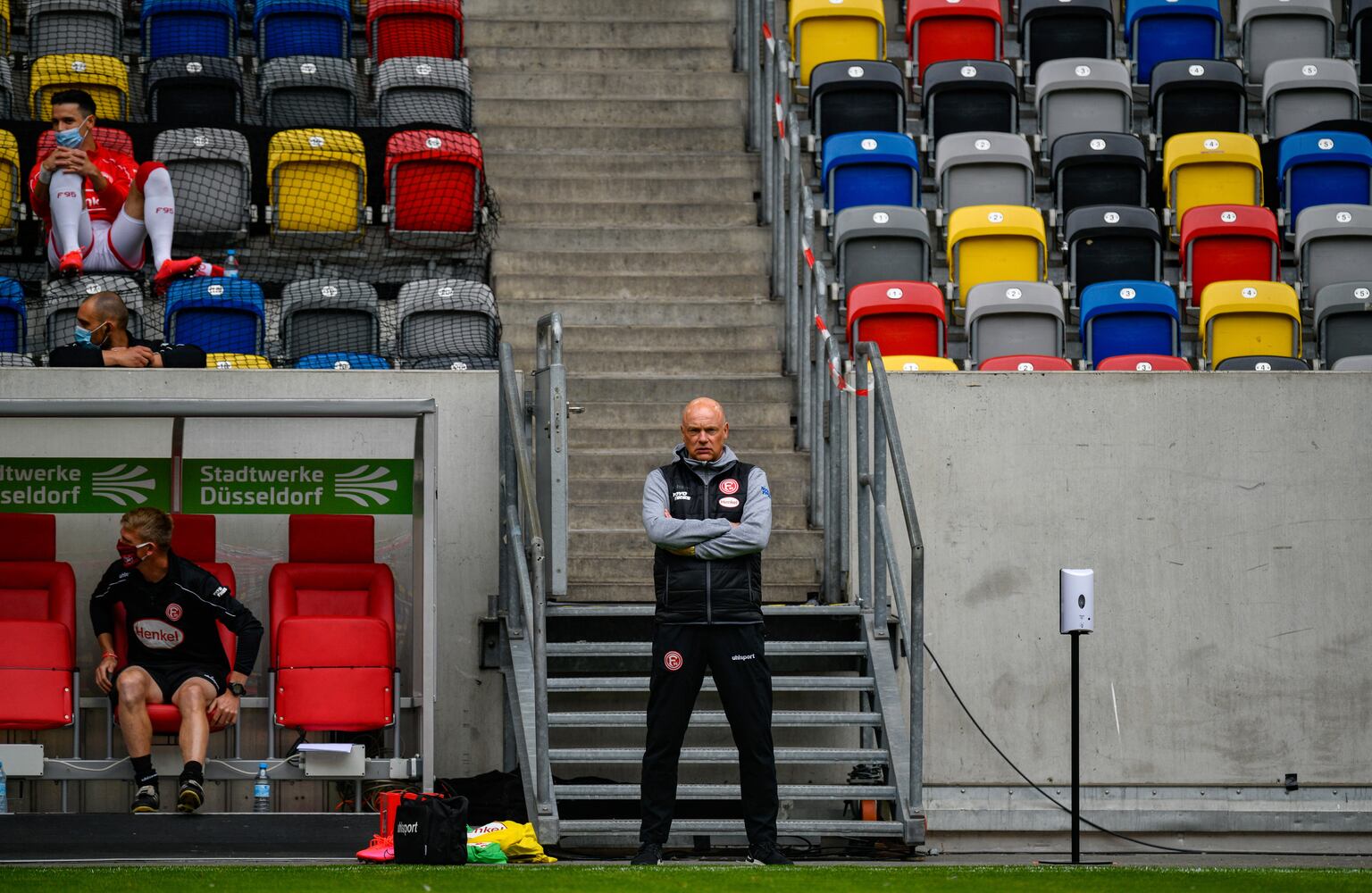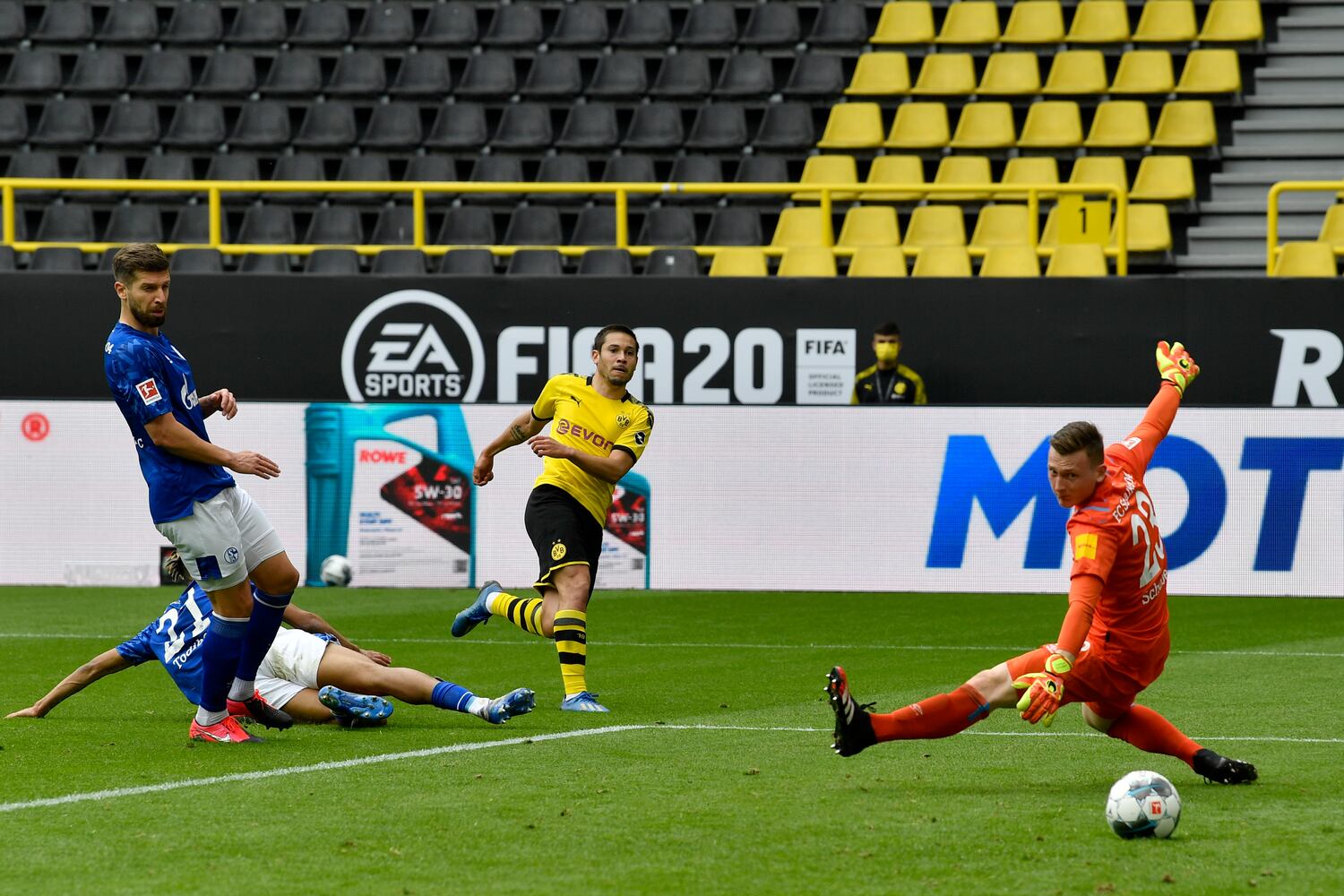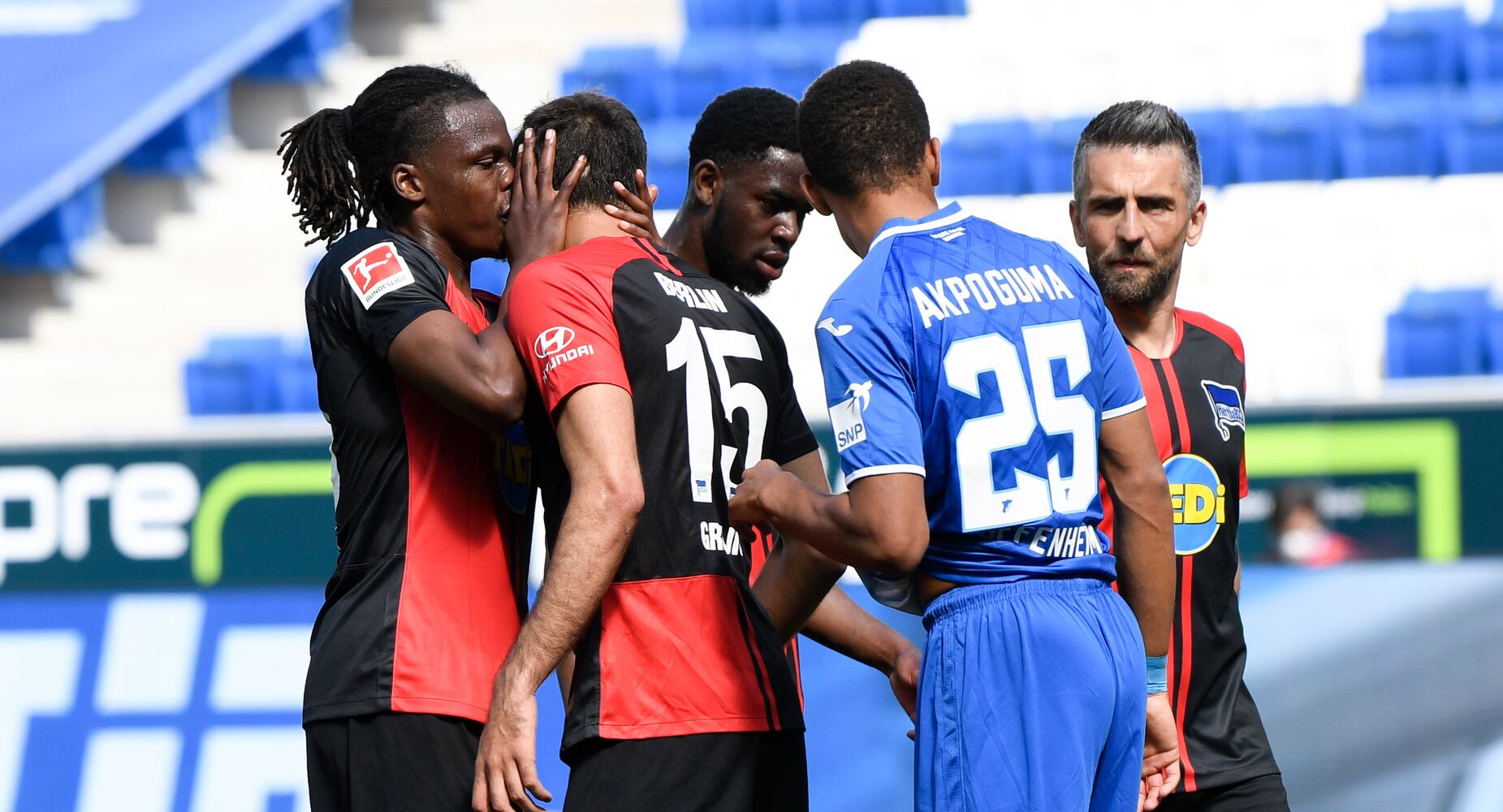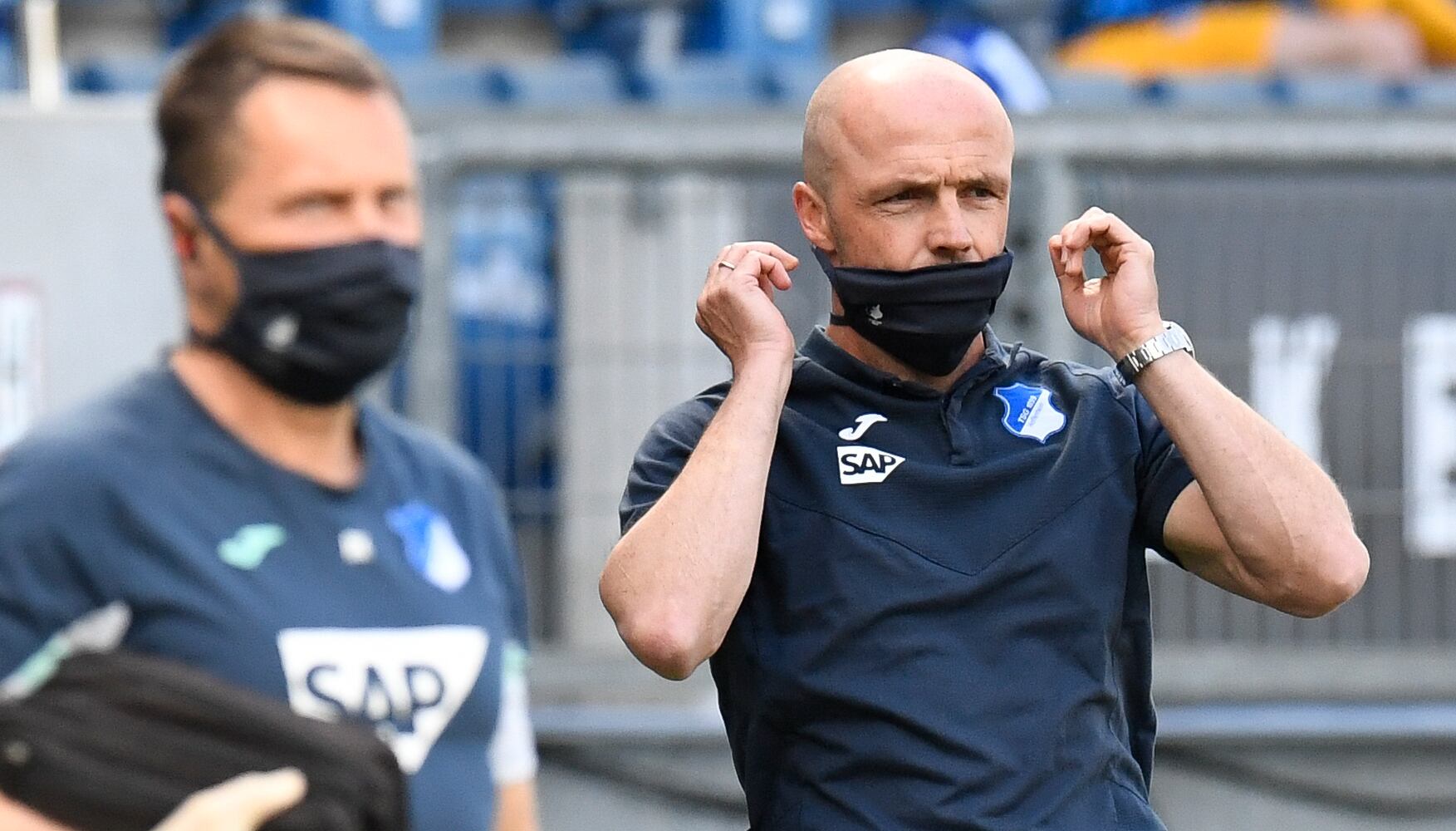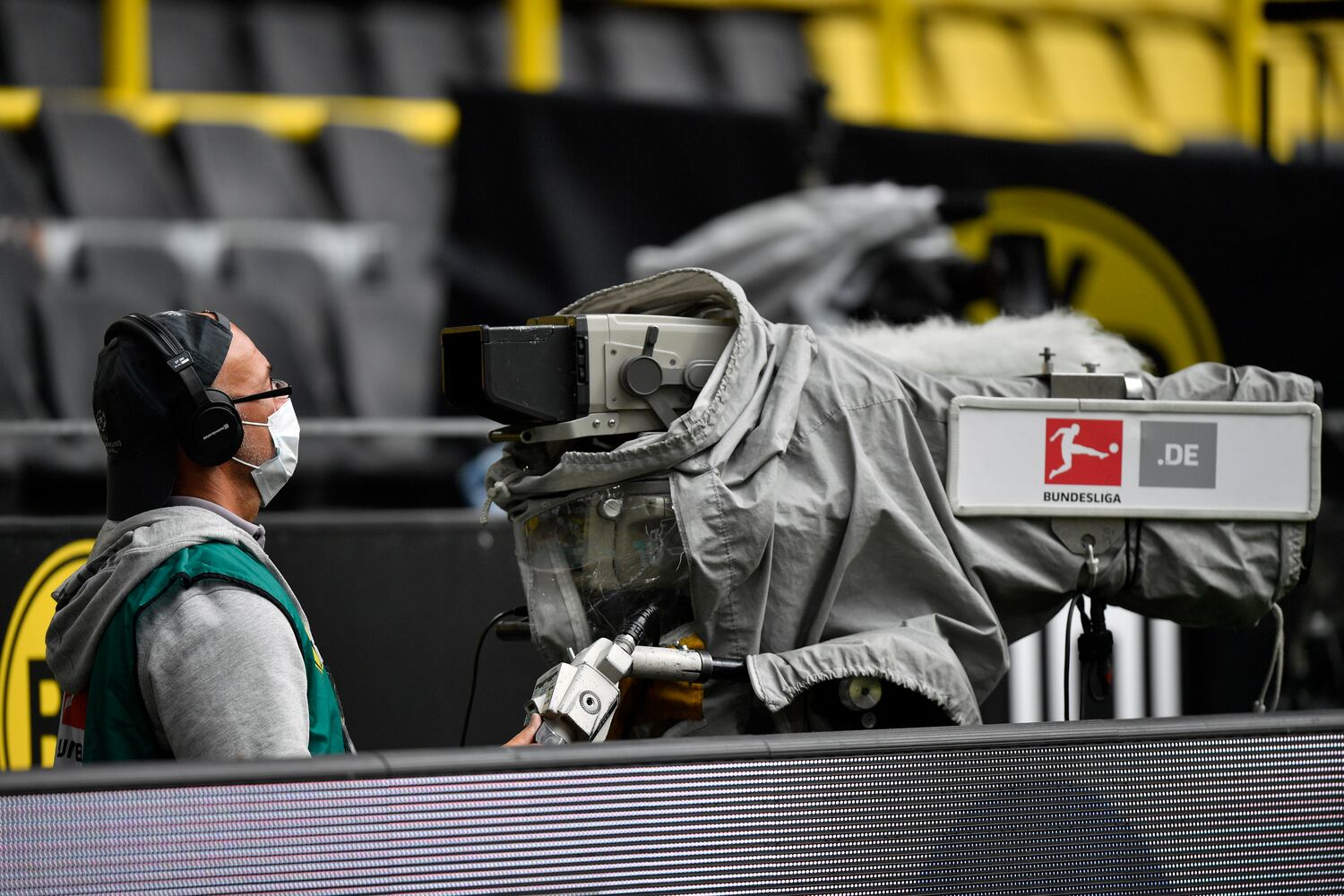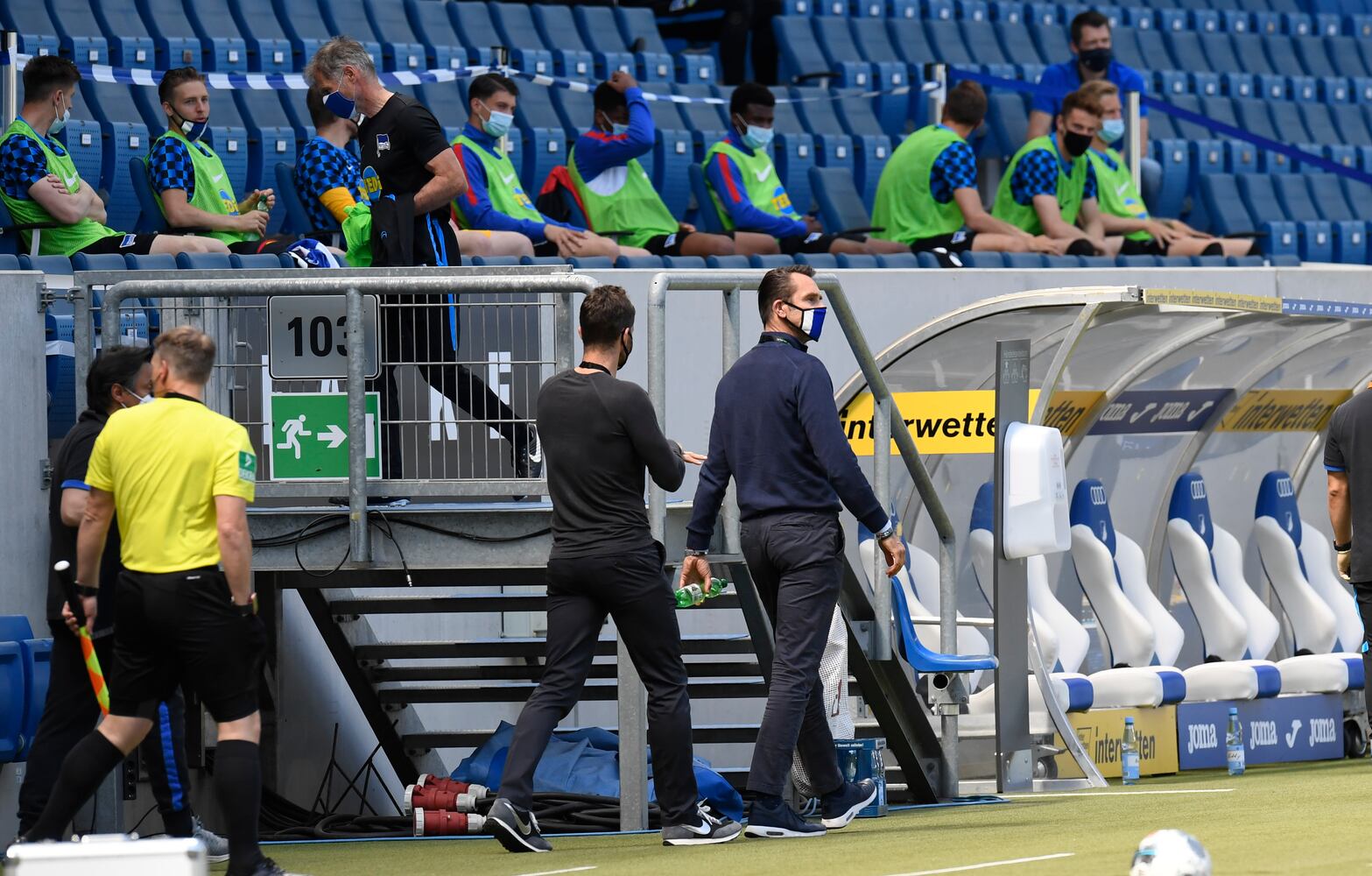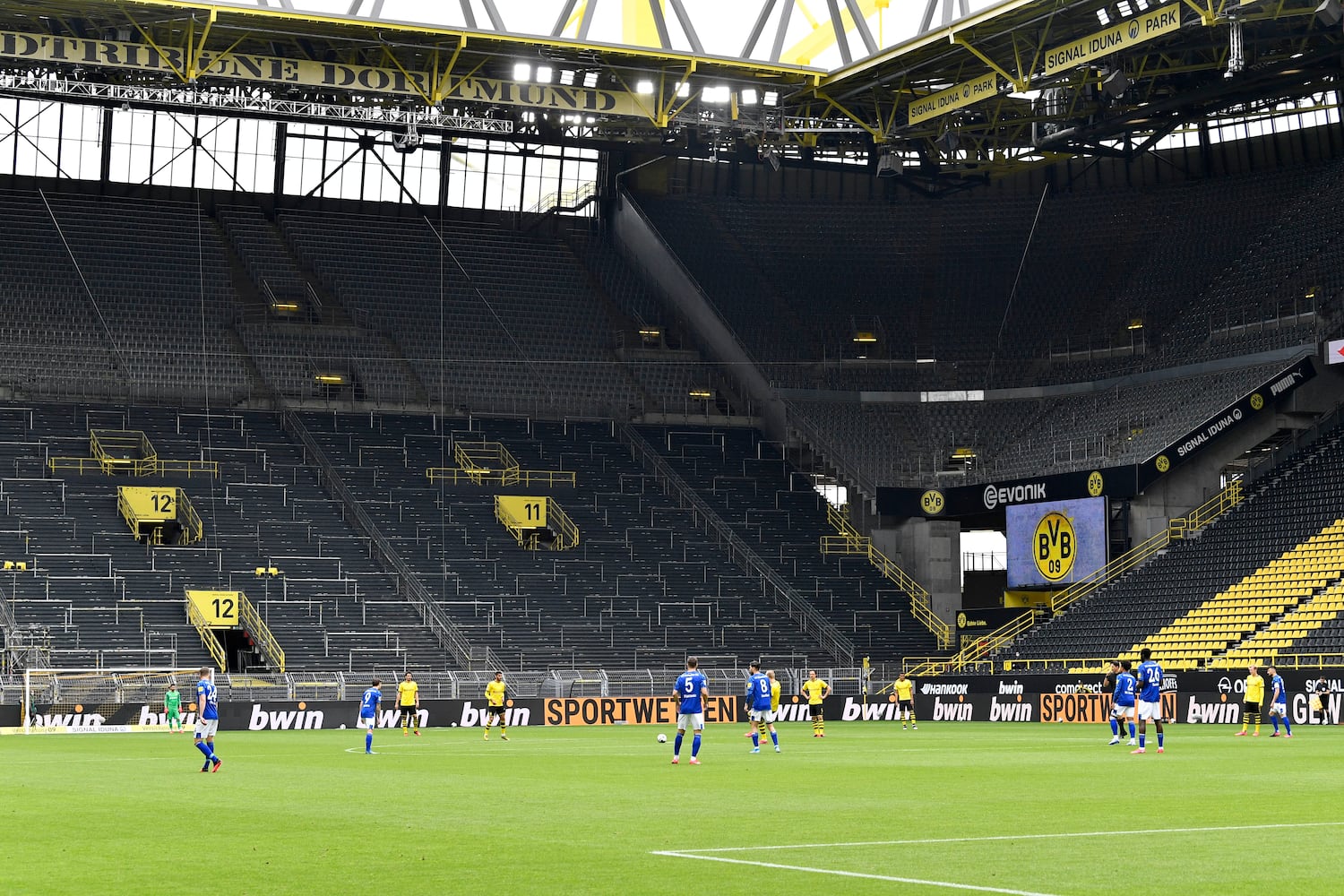To paraphrase Jon Landau on Bruce Springsteen: I saw sports’ future, and its name is …
Weirdness.
Drip by drip, our little games have begun to return. NASCAR ran at Darlington. Rory McIlroy won something. Racing and golf aren’t team sports, though. (Yes, pit crews — I’m aware.) It’s one person in a car or one person with a club, the caddie keeping a semi-social distance. Nobody passes the ball to anybody else. For that, we in this country must look overseas. The Korean baseball league sort of counts, though many of us were unaware of its existence until ESPN, starved for programming, bought the rights.
Over the weekend, we were reintroduced to the German Bundesliga. Depending on your view of Italy’s Serie A, the Bundesliga is either the third- or fourth-best league in the world. The German national team – Die Mannschaft – won the next-to-last World Cup. Even in a bad year, Bayern Munich is among the half-dozen best club sides in existence.
Because Fox Sports holds the rights, the Bundesliga is the soccer league I watch the second-most. When there’s a bad Premier League match on NBC, I’ll click over to see what’s happening in Germany. If Bayern Munich is playing, I’ll click over even if the English game is a good one. (Though NOT if Manchester United is involved … unless I get mad, which can happen.) Think of Bayern as the Yankees of Deutschland: It spends more, and whenever somebody else in the Bundesliga finds a young star, FC Hollywood — as Bayern is known, not lovingly, to rivals — just up and buys him.
Bayern has won the Bundesliga the past seven seasons. Its dogged pursuer is Borussia Dortmund, which is the Oakland A’s to Bayern’s Yankees. Its sporting director is Michael Zorc, who could be played by Brad Pitt if someone made the German version of “Moneyball.” (“Das Geld Ball,” I believe it’d be.) Dortmund is forever finding great young players and selling them, sometimes even to hated Bayern, only to go find more. Dortmund hires terrific coaches: Jurgen Klopp, whose Liverpool is the runaway Premier League leader, worked there; so did Thomas Tuchel, now of Paris Saint-Germain.
The Bundesliga returned on Saturday. Dortmund played Schalke. Dortmund’s Westfalenstadion seats 81,365. Counting the teams, coaches, refs, security guards and TV crew, there mightn’t have been 365 in the place. Yes, it was still Bundesliga soccer. The 19-year-old Erling Haaland scored the first goal. (He was supposed to sign with Man U.; don’t get me started.) Dortmund won 4-nil. It didn’t feel like a real game, though. It felt like a slightly spirited scrimmage.
The only noise was players yelling to one another, which apparently they do a lot, though if you watch soccer you mightn’t have heard it until now. Soccer crowds are the loudest. There’s always a chant or a song going, and sometimes the smallish number of visiting supporters make it their mission to out-shout the home folks. (Do I know the Man U. songs? Possibly. Do I sing them in the shower? No comment.)
Here you heard the ball being kicked and guys yelling about where to kick it next. When Haaland scored, his teammates celebrated at a social distance. When the match ended, the Dortmund players did as they usually do: They walked, though with conspicuous space between them, to the stadium’s south end, which is known as “Die Gelbe Wand,” which means “The Yellow Wall.” (Dortmund wears black and yellow.) Every other day, there’d have been a mass of supporters waving huge banners and brandishing scarves to greet their conquering heroes. The only sound this time was the players applauding the empty seats.
Bayern played Union Berlin on Sunday. In soccer, teams usually walk out side by side. The entrances are now staggered. Subs and coaches don’t sit together on benches. They sit in the stands, three empty seats between them. They wear masks.
On-field players, however, aren’t masked. This bothered me no end. On corner kicks, there are still 18 bodies in the penalty area, jostling for position and leaping for a header. If it’s important that those who aren’t playing wear masks — anyone subbed out gets handed a fresh one — why aren’t the guys who are running and jumping and breathing hard similarly outfitted? Isn’t COVID-19 transmitted by respiratory droplets? Isn’t that the reason for the 6-foot distancing?
Even while watching Germany’s two best teams, I thought less about the score than I did the coronavirus. Were these guys safe enough? When Robert Lewandowski converted a penalty for Bayern, he didn’t hug anybody. He did, however, bump elbows with his mates. What happens if somebody skins an elbow?
I nearly had a conniption when Manuel Neuer, the famous Bayern keeper, readied for a goal kick by — apologies for shouting — SPITTING INTO BOTH HIS GLOVES. (So much for the fuss made over using disinfectant wipes on the ball.)
At their heart, sports are supposed to a distraction. Watching the Bundesliga only induced more shades of worry. Do they need to be playing? What happens if somebody tests positive after the game? Would those teams be allowed to play again next week? One of the regular Union Berlin starters, we were informed, wasn’t available for Sunday’s match. He’s recovering from COVID.
And, given that I’m a sportswriter on the high side of 60, I kept asking myself: Would I want to be there? (Might be a moot point: Only 10 reporters were allowed at Bayern-Union. Can’t imagine the American model will be much different.)
As is the case with our re-opening of states, there’s no European consensus re: soccer. France’s Ligue 1 and the Netherlands’ Eredivisie canceled the rest of their seasons. Spain and Italy aren’t scheduled to play until the middle of June. England just moved to resume training in limited numbers at social distances.
We ask again: If no fans are there to watch an event happen, why stage the “event”? (TV money, I know.) I like soccer because games are wild; I learned Saturday/Sunday that 90 percent of the wildness stems from the setting. Bayern and Dortmund played and won, but it was the sporting equivalent of the tree falling in the forest. Except for the familiar shirts, these guys could have been anybody in the park having a kickabout. No fans, no frenzy. No fans, no point?
I watched soccer thinking it’d be nice to resume my weekend routine. The more I saw, the less I cared. It wasn’t fun. It was just … odd. If the fan-less Bundesliga is a preview of how U.S. sports will be when they resume, I’m not sure I’ll care much about those, either. The matches didn’t make me forget reality. On the contrary, they reminded me of it – and I really don’t need reminding.
About the Author
The Latest
Featured
